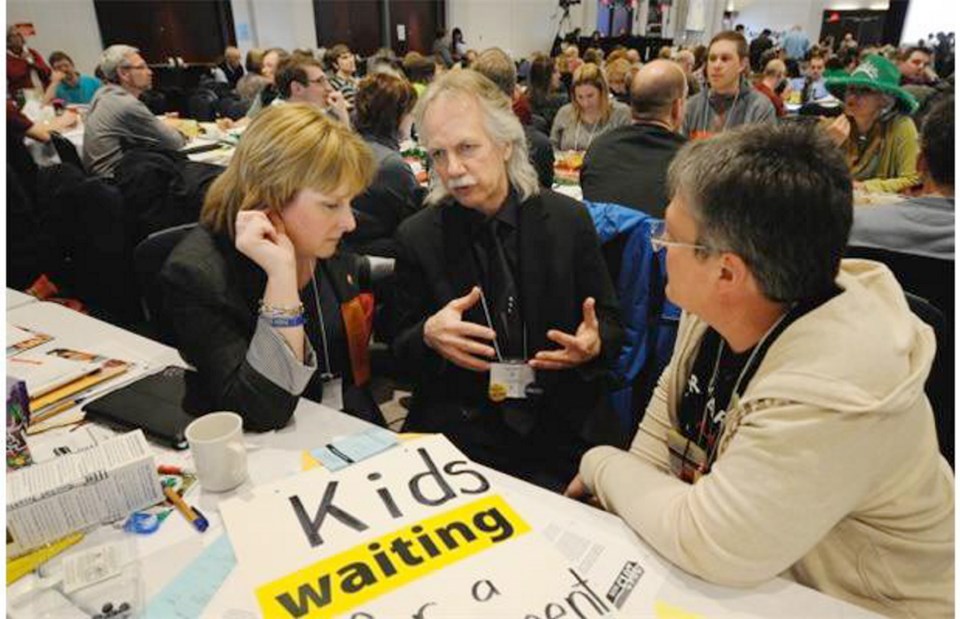VANCOUVER — A decade of legal battles with the Liberal government has cost the B.C. Teachers’ Federation plenty.
While the union isn’t in a financial crisis, it is experiencing difficulties, treasurer Rob McLaren told the B.C. Teachers Federation annual general meeting Sunday. That prompted a vote by the more than 600 delegates to make permanent a 2012 fee increase that was expected to last only one year.
“We’ve had our challenges,” admitted president Susan Lambert, who is retiring at the end of the school year and leaving the top job to vice-president Jim Iker, the only candidate seeking to replace her in elections on Monday.
Many of the legal bills arose from a decade-long challenge of a 2002 law that ended the BCTF’s right to bargain class size and composition. Although the union won in B.C. Supreme Court in 2011, it is headed back to court in the fall as it seeks to restore services lost as a result of that law.
The increase in class size and reduction in specialist teachers cost the BCTF 3,500 members, Lambert said. “All of that means we have to tighten our belt.”
While lawyer fees continue to mount, union leaders hope the May provincial election will usher in a friendlier NDP government, resulting in fewer court battles, a boost in public school funding and an increase in the number of teachers.
“I hope there will be no more legislative assaults on our rights ... so we won’t have to defend ourselves,” Lambert said in an interview. “That would be a relief. I also hope there will be a significant appreciation of the responsibility of government to adequately fund education.”
NDP leader Adrian Dix has not yet outlined his plan for education spending and was not invited to address the forum.
Lambert said public education needs an additional $300 million a year immediately.
As well, the union is in the early stages of negotiations with public school employers to replace a contract that expires June 30, and will likely be seeking a pay hike.
While finances and pensions were a dominant concern during the Sunday session, delegates are expected to debate a range of resolutions Monday and Tuesday, including calls for a halt to wireless installations in schools given health concerns among some about Wi-Fi radiation, and a motion of support for the NDP.



